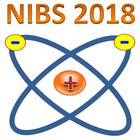Speaker
Mr
Iaroslav Kolesnikov
(Budker Institute of Nuclear Physics)
Description
For the development of boron neutron capture therapy at the Budker Institute of Nuclear Physics it
was created a source of epithermal neutrons [1], based on a tandem accelerator with vacuum
insulation. In the accelerator it was obtained a stationary proton beam with 2 MeV energy and up to
5 mA current [2]. In order to increase the proton current, it has been in depth studied the transport
of a negative hydrogen ion beam and its injection into an accelerator in detail. To measure current
and profile it was used a wire scanner OWS-30 (D-Pace, Canada), supplemented with rings under
negative potential for suppressing secondary electron emission. The current and the transverse
profile of the beam were measured as a function of the residual gas pressure regulated by the
installed leak. It is found that, while the pressure of the residual gas is increasing, the current and
the transverse beam size are decreasing. The current decrease is caused by stripping, the decrease in
the transverse dimension is due to the weakening of the space charge effect, due to the increasing
amount of positive ions. The density of the negative hydrogen ion current has a maximum value at
the intermediate value of the residual gas pressure. Based on the results of measurements of the
wire scanner, the radial profile of the beam was obtained, which turned out to be hollow due to the
effect of the space charge of the beam and the spherical aberrations of the magnetic lenses. The
paper presents and discusses the results of numerical simulations and experiments.
Recommendations are given for injection conditions for increasing the proton current.
References
1. B. Bayanov, V. Belov, E. Bender, et al., 1998. *Accelerator based neutron source for the neutron-capture and fast neutron therapy at hospital*. Nucl. Instrum. Methods Phys. Res. A **413**, 397–426.
2. A. Ivanov et al. *Suppression of an unwanted flow of charged particles in a tandem
accelerator with vacuum insulation*. JINST, **11**, P04018 (2016)
Primary author
Mr
Iaroslav Kolesnikov
(Budker Institute of Nuclear Physics)
Co-authors
Dr
Alexander Makarov
(Budker Institute of Nuclear Physics)
Alexey Koshkarev
(Budker Institute of Nuclear Physics)
Mr
Dmitrii Kasatov
(Budker Institute of Nuclear Physics)
Evgeniya Sokolova
(Budker Institute of Nuclear Physics)
Dr
Igor Sorokin
(Budker Institute of Nuclear Physics)
Ivan Shchudlo
(Budker Institute of Nuclear Physics)
Prof.
Sergey Taskaev
(Budker Institute of Nuclear Physics)
Mr
Timofey Bykov
(Budker Institute of Nuclear Physics)
Yuri Ostreinov
(Budker Institute of Nuclear Physics)

